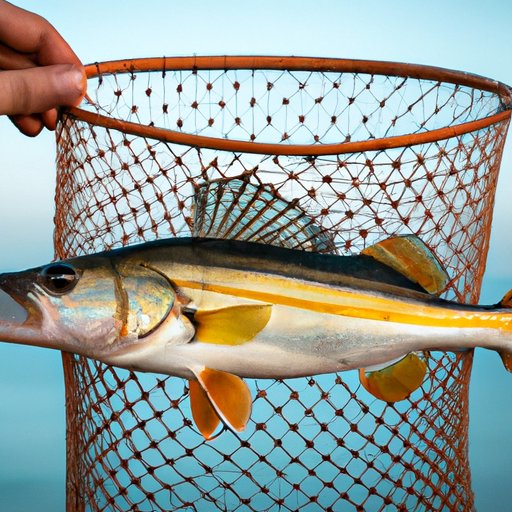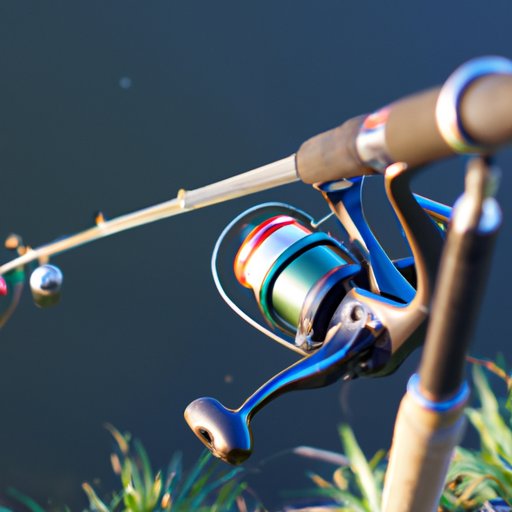Introduction
Fishing can be a frustrating sport for beginners, but it can also be an enjoyable way to spend your free time. If you’re looking to get started with fishing, this article will provide you with everything you need to know to be successful.
Beginner’s Guide to Fishing
Fishing is a popular pastime that can be enjoyed in many ways. Whether you prefer freshwater, saltwater, or ice fishing, there are many options available for you. Before you can start fishing, you need to know the basics. Fishing involves using a fishing rod, reel, line, and bait to catch fish. Fishing can be done for both sport and food purposes. Fishing is relaxing and a great way to escape from the hustle and bustle of everyday life.
Freshwater fishing is where you fish in any water source that is not salty such as lakes, ponds, rivers and streams. Saltwater fishing is performed in oceans, bays and near the coast. Ice fishing is done on frozen bodies of water. The type of fishing you choose will depend on your location and interests.
When selecting your equipment, keep in mind that different types of fish require different techniques to catch, and you will need the right gear to achieve success. Your fishing gear should include a rod, reel, and line. Fishing rods are designed for different kinds of fishing, including freshwater, saltwater, and ice fishing. Choosing the right rod for your needs will depend on your type of fishing. The reel is the mechanism that winds the line onto the spool and is available in different types including spinning, baitcasting and spincasting reels. The right line will depend on the spool capacity, species of fish, and type of fishing.
Baiting your hook, casting a line, and reeling in your catch take practice but are fairly easy to learn. You need to attach your bait to your hook using a knot and cast your line into the water. You should wait patiently for a strike and avoid jerking the rod once fish have taken the bait. Once you’ve hooked the fish, use your reel to bring it in while keeping the rod extended.

Top 5 Tips to Catch More Fish
If you are looking to increase your catch rate, we offer you these five techniques and skills:
- Properly baiting your hook: Presentation is key when it comes to bait. Make sure your bait is fresh and appealing to the fish you are trying to catch.
- Identifying the best fishing spots: Research your fishing spot online or ask locals where the best spots are for your type of fishing.
- Using the appropriate technique for the type of fish you are targeting: Different fish require different techniques to catch. Make sure you use the right technique to catch your desired fish.
- Practicing patience while waiting for the fish to bite: Be patient and do not jerk your rod immediately after you’ve got a strike. Wait until the fish has swallowed your bait and is on the hook.
- Properly handling the fish once you have caught it: It is important to handle the fish in the right way. Do not hold them too firmly or put them back into the water immediately if you are planning a catch-and-release expedition.
Guide to Choosing the Right Fishing Rod and Reel for Your Next Fishing Trip
Choosing the right fishing gear can make all the difference in your fishing trip. Here are tips for selecting the right equipment for your specific needs and preferences.
Spinning reels are best for beginners due to their ease of use. Baitcasting reels are more advanced and allow for better accuracy and distance but requires a skilled angler. Spincast reels are great for kids or inexperienced adults. Your rod should also have the right length, power, and action to match the type of fishing.
10 Essential Items You Need to Pack for a Successful Fishing Trip
Packing the right items for your fishing trip can mean the difference between a successful trip and a disaster.
- Sunscreen and insect repellent: If you’re fishing in the outdoors, it is important to bring sunscreen and insect repellent to protect yourself from the sun and bugs.
- First aid kit: Accidents happen and it’s better to be prepared than sorry.
- Cooler and ice packs: If you’re fishing for food, keep your catch fresh with a cooler and ice packs.
- Proper clothing to protect against the elements: Bring the right clothing for your fishing trip. If you are going on a cold day, make sure you are layered up and protected. If the sun is hot, bring a hat and sunglasses.
How to Find the Best Fishing Spots: Tips for Locating the Perfect Fishing Hole
Finding the best fishing spot is key to a triumphant fishing expedition. Here are tips on how to locate the perfect fishing hole.
- Research online or in local fishing shops: Finding information online can open up a lot of great spots. Fishing guide services and local shops can also assist in creating a list of the best spots for your type of fishing.
- Networking with locals: Talking to locals and enthusiasts can help discover hidden gems for fishing. Making a new friend who is familiar with the area can be greatly beneficial.
- Being aware of and attuned to natural signs such as current, depth, and water temperature: Identifying signs such as these can give you a clue as to where the fish may be gathering.
The Art of Bait and Lure Selection: Tips for Attracting More Fish
The bait you use can increase your possibility of catching more fish. Here are tips for choosing the appropriate bait or lure.
- Choose the right bait or lure: Research what type of bait or lure the species of fish you want to catch attracts. For instance, bass is attracted to rubber worms, and trout are attracted to live bait.
- Distinguish between live and artificial bait: Live bait is real fish or insects, while artificial bait is a chemical mixture designed to look or smell like natural bait.
- Tips for storing and handling lures and bait: Proper storage and handling of your bait or lure is crucial in ensuring your bait is in good condition and thus more attractive to the fish.
Fishing Ethics and Conservation: How to Enjoy Fishing Responsibly and Sustainably
Fishing can have some negative environmental impacts if not done responsibly and sustainably. Here are tips on how to enjoy fishing ethically.
- Emphasize ethical fishing practices such as catch and release: If you’re not fishing for food, consider catch and release as it helps preserve the population of fish in the water body.
- Avoid overfishing: Do not exceed the fishing limit or take fish that are undersized.
- Reduction of waste and pollution while fishing: Ensure the appropriate and responsible disposal of waste products.
Conclusion
Fishing can be a challenging yet extremely relaxing and enjoyable experience. This article has covered all the basics for beginners, including selecting equipment, casting your line, and catching fish. We’ve also covered tips for ensuring greater success, choosing the right spot, equipment, and bait, becoming a responsible fisherman, and conservation. Now that you know all the necessary tools, consider giving fishing a try — it’s a wonderful way to relax and enjoy nature.
